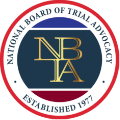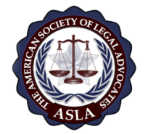Across the country, legislators have taken the issue of texting while driving to the state house, and 29 states have banned the dangerous practice.
But in West Virginia, efforts to approve a “no texting while driving” law have hit some familiar roadblocks. A recent legislative effort to ban the practice was defeated when a state senator attempted to add an amendment to the legislation to fund cell phone towers.
Grim Statistics on Texting While Driving
The defeat infuriated supporters of the ban, who cited statistics from the National Highway Traffic Safety Administration that show at least 21 percent of all traffic accidents with injuries are caused by distracted driving. Nearly 6,000 people were killed and over 500,000 injured in these types of motor vehicle accidents [link to practice page], according to a 2008 NHTSA report.
Individual Responsibility Versus Universal Safety Mandates
Despite the grim statistics, West Virginia policy makers have historically espoused individual responsibility over universal safety mandates. For example, the state resisted passage of a helmet law, even though as many as two dozen people a year were killed because they weren’t wearing helmets when riding motorcycles and ATVs. A helmet law was finally passed in 2004 after the relative of a state legislator was killed in an ATV accident.
Contentious Debate on Texting Legislation in West Virginia Legislature
Opponents to a no-texting law say the state already has a distracted driving law on the books, and if police stop someone who was texting while driving, a citation can be issued.
But that’s not good enough, say texting-ban supporters. A specific ban on texting while driving will send a clear message, they say, that it is not only illegal to text and drive, but inherently dangerous.
Ironically, U.S. Senator Jay Rockefeller of West Virginia has introduced a federal ban on texting. The Distracted Driving Prevention Act would provide education and grants to states that enact bans on texting and cell phone use, which would provide incentives for states like West Virginia to implement a statewide ban. The $94 million program cleared a crucial Senate committee in June 2010 and now comes before the full Senate for a review.
Our Awards and Certifications










Practice Areas
- Personal Injury Overview
- Bicycle Accidents
- Brain Injuries
- Burn Injuries
- Car Accidents
- Commercial Delivery Truck Collisions
- Construction Site Injuries
- Defective Product Injuries
- Dog Bite Injuries
- Drunk Driver (DUI) Accidents
- Gas Explosion Injuries
- Insurance Claim Disputes
- Mining Accident Injuries
- Motorcycle Accidents
- Pedestrian Accidents
- Rear-End Collisions
- Scaffold & Ladder Fall Injuries
- Slip And Fall Accidents
- Spinal Cord Injuries
- Truck Accidents
- Uninsured Motorists
- Work Accidents
- Wrongful Death



